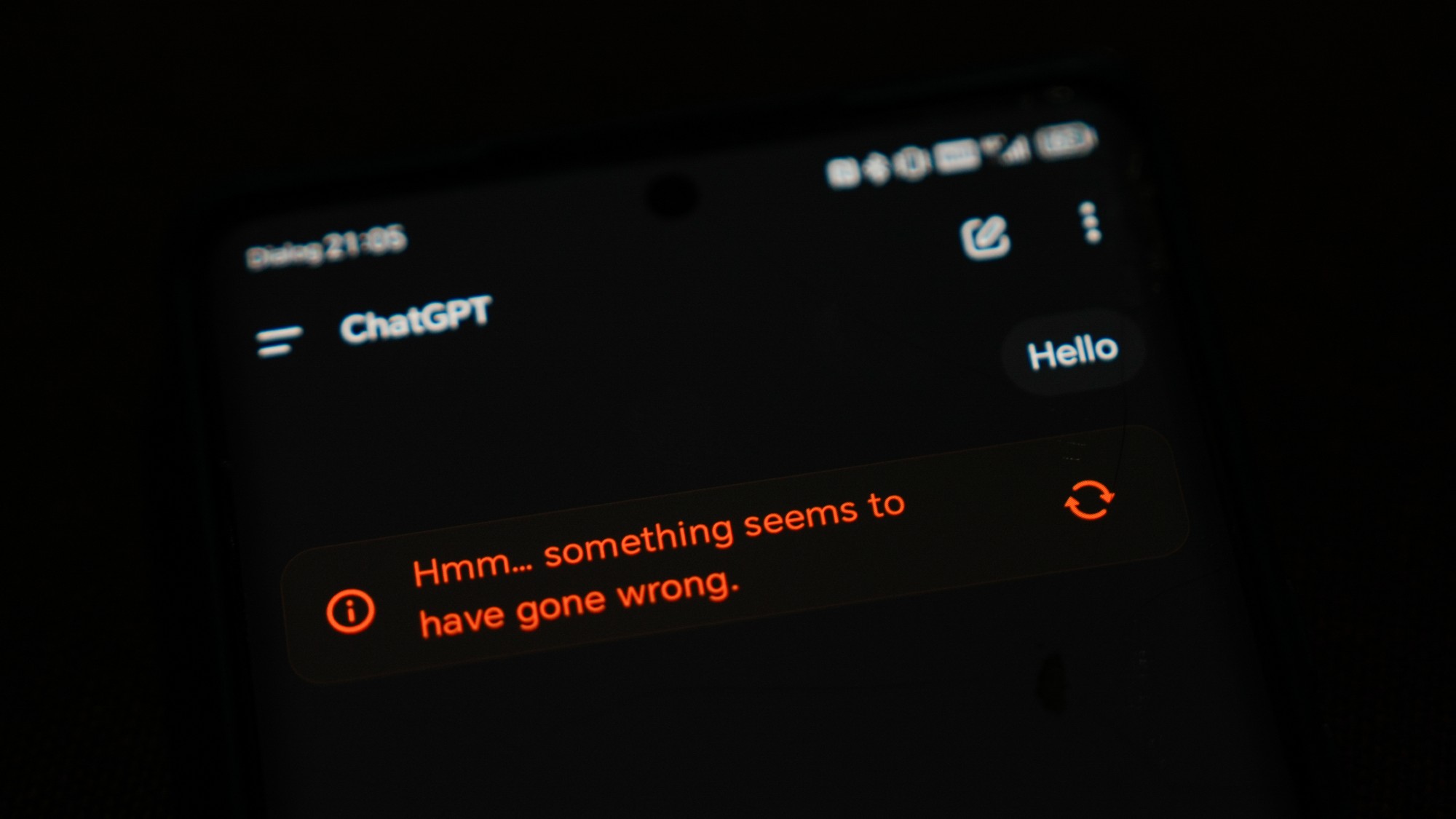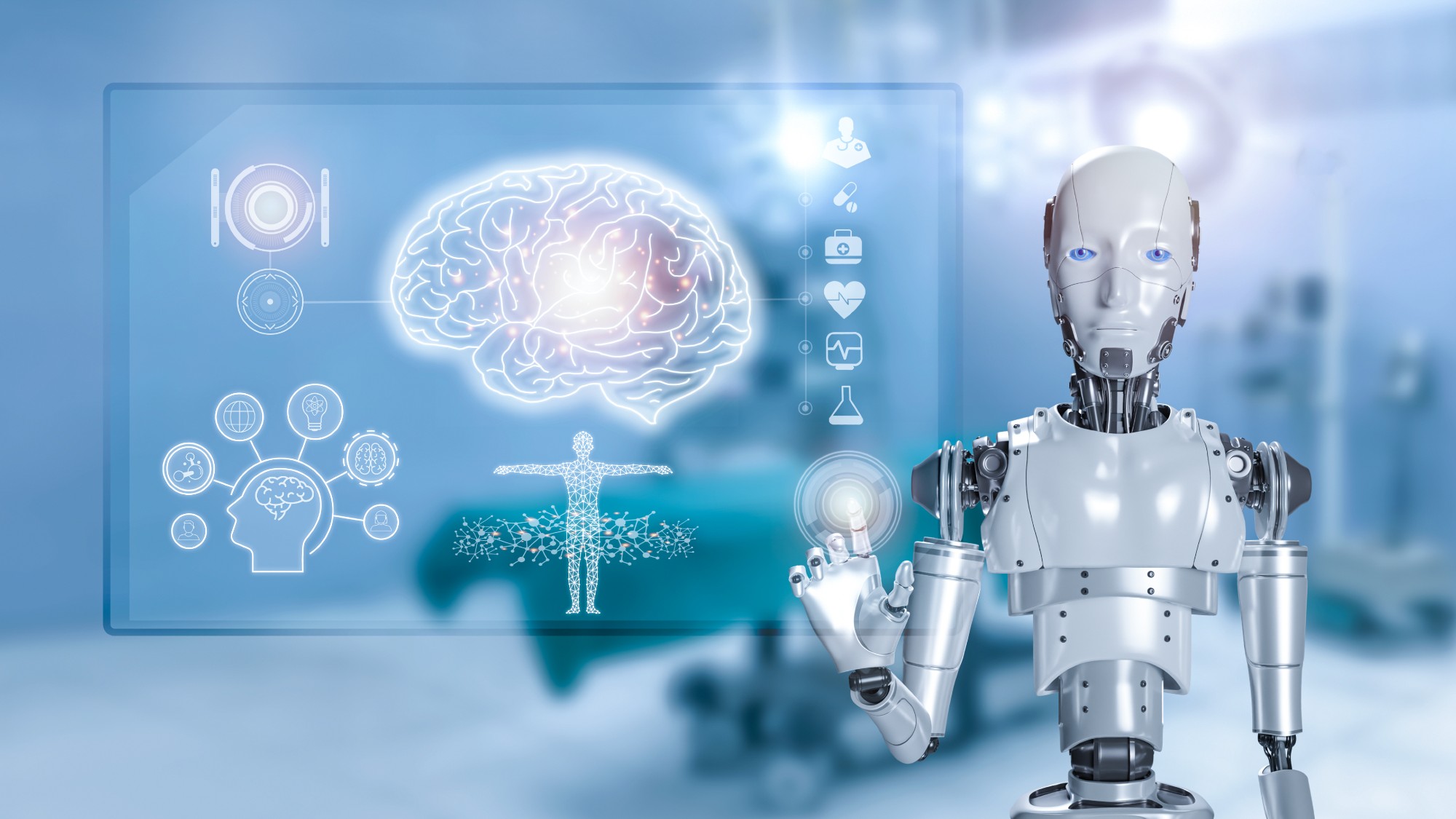AI: is the bubble about to burst?
Stock market ever-more reliant on tech stocks whose value relies on assumptions of continued growth and easy financing

A free daily email with the biggest news stories of the day – and the best features from TheWeek.com
You are now subscribed
Your newsletter sign-up was successful
The saying goes that if people are talking about a bubble, we’re probably already in one. Right now, people are shouting about an AI bubble – so should we be braced for a crash?
Based on the typical indicators of a looming “correction”, there are certainly reasons to be fearful, said Jon Yeomans in The Times. The most obvious is the very high valuations of AI firms and the speed with which they’ve been reached. Take Nvidia, the chipmaker “at the vanguard of AI”. Up 40% this year, it’s now valued at $4.7 trillion – the GDP of Germany.
Then there is the alarming concentration of risk. The ten biggest US stocks, eight of which are tech, account for about 20% of the global equity market. A third indicator is over-investment: $5 trillion is forecast to be spent on data centres and other AI infrastructure by 2030. A fourth is circular financing: to take one example, Nvidia appears to be funding OpenAI to buy its chips.
The Week
Escape your echo chamber. Get the facts behind the news, plus analysis from multiple perspectives.

Sign up for The Week's Free Newsletters
From our morning news briefing to a weekly Good News Newsletter, get the best of The Week delivered directly to your inbox.
From our morning news briefing to a weekly Good News Newsletter, get the best of The Week delivered directly to your inbox.
We’re reaching a stage where prices are being sustained only by expectations of rising valuations and easy financing, said The Guardian. Startups with no products are raising billions as “capital chases fads”, not earnings. Bubble sceptics stress that valuations are not nearly as high as at the peak of the dotcom bubble. But you can’t not worry, when those sounding the alarm include the likes of Jeff Bezos.
Bezos isn’t entirely gloomy, said Andrew Orlowski in The Daily Telegraph. He says it’s a “good bubble”: there will be losers when it bursts, but it is facilitating the building of the infrastructure needed to enable AI to change the world in the future. And it is true that new tech often stutters before being widely adopted. But there is no law that says this has to be the trajectory.
And for all the hype about AI’s superpowers, some wonder if America’s AI sector will ever command the returns it needs to sustain its huge costs – which include expensive chips with short lifespans. Firms report that 95% of AI projects have not justified their investment; and despite the scary stories about AI gobbling up jobs, there is little evidence that it is doing so. So if the crash comes, how bad will it be? Well, this bubble is said to be 17 times larger than the dotcom one. “No wonder the boosters don’t want the hype to end.”
A free daily email with the biggest news stories of the day – and the best features from TheWeek.com
-
 Political cartoons for February 18
Political cartoons for February 18Cartoons Wednesday’s political cartoons include the DOW, human replacement, and more
-
 The best music tours to book in 2026
The best music tours to book in 2026The Week Recommends Must-see live shows to catch this year from Lily Allen to Florence + The Machine
-
 Gisèle Pelicot’s ‘extraordinarily courageous’ memoir is a ‘compelling’ read
Gisèle Pelicot’s ‘extraordinarily courageous’ memoir is a ‘compelling’ readIn the Spotlight A Hymn to Life is a ‘riveting’ account of Pelicot’s ordeal and a ‘rousing feminist manifesto’
-
 Moltbook: The AI-only social network
Moltbook: The AI-only social networkFeature Bots interact on Moltbook like humans use Reddit
-
 Are AI bots conspiring against us?
Are AI bots conspiring against us?Talking Point Moltbook, the AI social network where humans are banned, may be the tip of the iceberg
-
 Silicon Valley: Worker activism makes a comeback
Silicon Valley: Worker activism makes a comebackFeature The ICE shootings in Minneapolis horrified big tech workers
-
 AI: Dr. ChatGPT will see you now
AI: Dr. ChatGPT will see you nowFeature AI can take notes—and give advice
-
 Claude Code: Anthropic’s wildly popular AI coding app
Claude Code: Anthropic’s wildly popular AI coding appThe Explainer Engineers and noncoders alike are helping the app go viral
-
 Will regulators put a stop to Grok’s deepfake porn images of real people?
Will regulators put a stop to Grok’s deepfake porn images of real people?Today’s Big Question Users command AI chatbot to undress pictures of women and children
-
 Most data centers are being built in the wrong climate
Most data centers are being built in the wrong climateThe explainer Data centers require substantial water and energy. But certain locations are more strained than others, mainly due to rising temperatures.
-
 The dark side of how kids are using AI
The dark side of how kids are using AIUnder the Radar Chatbots have become places where children ‘talk about violence, explore romantic or sexual roleplay, and seek advice when no adult is watching’